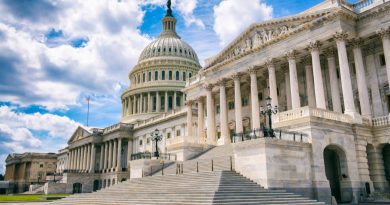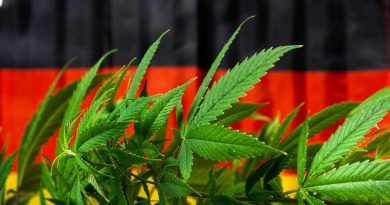DEA Conducting Review of Cannabis Rescheduling and Schedule I Status
The Drug Enforcement Administration (DEA), which has the final word on where marijuana is classified on their federal drug schedule, has launched a review to determine whether cannabis rescheduling needs to be rescheduled from its current Schedule I status.
Understanding where things stand with cannabis rescheduling involves some information about how the wheels of the federal bureaucracy turn. The DEA review is the next step in a process that started with President Joe Biden in 2022.
In October of that year, Biden asked for a review of the status of cannabis on the federal drug schedule. That started with a review by the Department of Health and Human Services (HHS), which concluded in August 2023 and recommended changing the status of cannabis from Schedule I to the less-restrictive Schedule III.
The next step involves going to the Justice Department. The DEA works as part of the Justice Department, and has launched its review of the potential for cannabis rescheduling. It’s an area where final control rests with the DEA, according to a letter from DEA official Michael Miller to U.S. Rep. Earl Blumenauer, a Democrat from Oregon.
“DEA has the final authority to schedule, reschedule, or deschedule a drug under the Controlled Substances Act, after considering the relevant statutory and regulatory criteria and HHS’s scientific and medical evaluation,” Miller wrote. “DEA is now conducting its review.”
What Is the Federal Drug Schedule?
Created as part of the federal Controlled Substances Act (CSA) passed during the Nixon Administration in 1971, the federal drug schedule categorizes and regulates various drugs and substances based on the potential for abuse, medical use and safety. The DEA enforces the Controlled Substances Act.
The schedule has five categories, or schedules, ranging from Schedule I to Schedule V. The federal government determines the classification by the substance’s potential for abuse, accepted medical uses and the level of dependence it may cause.
Substances in the Schedule I category are deemed by the government to have a high potential for abuse, no currently accepted medical use in treatment in the United States and a lack of accepted safety for use under medical supervision. Heroin, LSD and ecstasy are all Schedule I drugs.
Schedule II substances have high potential for abuse but also accepted medical uses. Examples include cocaine, morphine and oxycodone. Schedule III, which is where HHS recommended that the DEA reschedule cannabis, includes drugs with less potential for abuse, accepted medical uses and a moderate to low risk of physical or psychological dependence. Drugs currently in Schedule III include steroids and codeine.
Schedule IV includes substances with low potential for abuse such as Xanax, Valium and other benzodiazepines. Schedule V includes substances with the lowest potential for abuse, including cough syrups with less than 200 milligrams of codeine per 100 milliliters or per 100 grams.
Letter the Result of Actions by Blumenauer and Other Lawmakers
Blumenauer has been a strong advocate for cannabis legalization, including fighting to get regulations changed that would allow truck drivers who use medical marijuana to keep their jobs. He and dozens of other lawmakers, both Democrats and Republicans, sent a letter in October to DEA Administrator Anne Milgram asking for her to “end the harmful federal marijuana prohibition and help our law enforcement officers appropriately prioritize public safety.” Miller’s response came in reaction to that letter.
The letter from Blumenauer and other lawmakers hit upon one of the biggest complaints about the current scheduling of cannabis: Cannabis is considered on par with drugs such as LSD and heroin.
“The decision to schedule marijuana was rooted in stigma rather than an evidence-based process, and it is time to fully remedy this wrong,” the lawmakers wrote. “Moving marijuana to Schedule III would be an important step in the right direction, but it is not sufficient to correct the wrongs of federal prohibition or to meaningfully address the federal-state gap on cannabis policy.”
They instead want full legalization of cannabis. However, given the current balance of power in the U.S. Congress, that seems unlikely in the near future.




